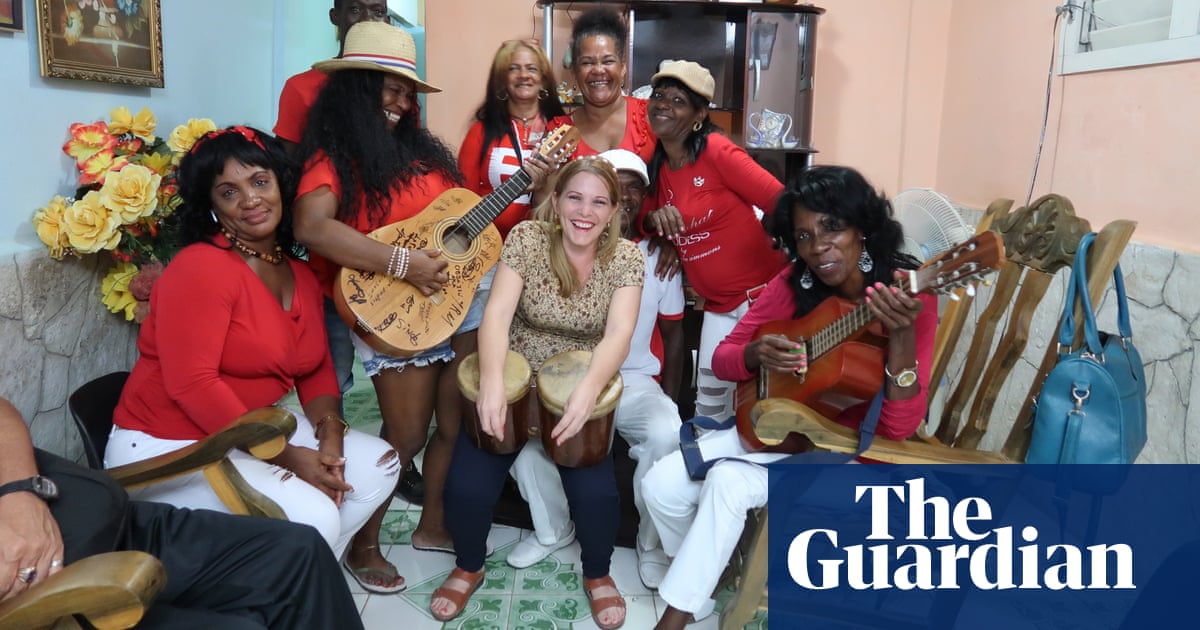Despite the challenges facing Cuba, the spirit of resilience and celebration is alive and well in the changüí music scene. The festival in Guantánamo is a testament to the rich history and cultural significance of this genre, which has been passed down through generations. The music is not just a form of entertainment, but a way of life, a connection to the past, and a source of pride for the Cuban people. As the musicians continue to play, sing, and dance, they keep the tradition alive, honoring the legacy of those who came before them. Changüí is more than just music – it’s a celebration of community, joy, and perseverance in the face of adversity.
Durante una actuación callejera de sábado por la noche, Juana Poulot de Las Flores del Changüí comparte el micrófono con otro director de banda, el jubilado trabajador de la caña de azúcar Alejandro “Popó” Moirán Gamboa, y la pareja improvisa versos durante casi siete minutos.
Después de que los instrumentos se guardan y los grupos se van, los miembros de Eusebia Latamblé y su Changüí – generalmente dirigidos por la sobrina de Chito Latamblé que lamentablemente no pudo asistir al festival debido a problemas de salud – cantan y tocan mientras pasan una copa de ron. “Así es como lo hacemos”, dice el fiestero de 78 años Rafael Cuesta. “El Changüí es una comunidad, compartimos todo, en los buenos tiempos y en los tiempos difíciles. El Changüí es mi vida”.
Gianluca Tramontana es el productor del álbum y del libro de fotos Changüí – El Sonido de Guantánamo
